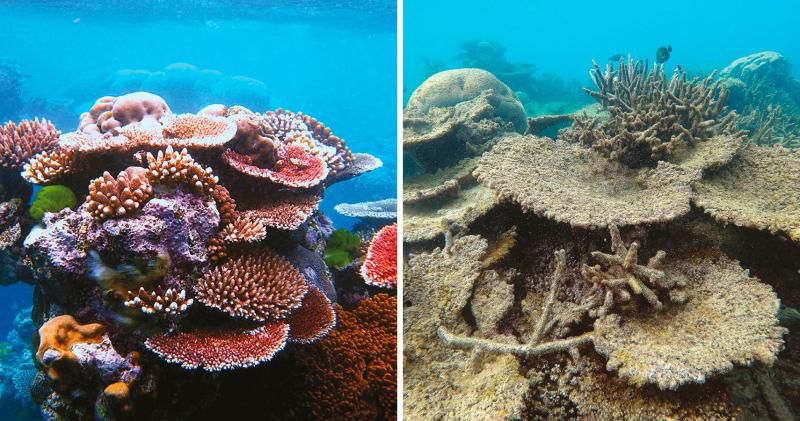Coral reefs occupy only a tiny part of the seabed: less than 0.2%. Yet they are found along more than 150,000 kilometers of coastline in more than 100 countries and territories. Coral reefs are vital to the environment as they provide coastal protection, support immense biodiversity, and are a crucial food source for many marine species and humans. They act as natural barriers against storms, absorbing wave energy to protect coastlines, and serve as habitats for about 25% of all marine life. Furthermore, reefs support fisheries, provide economic opportunities through tourism, and filter water.
Ecological importance
- Biodiversity: Coral reefs are often called the “rainforests of the sea” because they support a huge variety of life. Approximately 25% of all marine species rely on them for habitat, food, and breeding grounds.
- Climate regulation: Through the process of carbon cycling, healthy coral reefs contribute to reducing the amount of greenhouse gases, particularly carbon dioxide, which are responsible for climate change. This natural carbon sink helps stabilize the climate and mitigates the impacts of global warming.
- Natural filters: Reefs are home to filter-feeding organisms that help keep the water clear by consuming particles and pollutants, which improves overall water quality.
- Food webs: They form the base of a complex food web, providing a food source for many species, including those that are indirectly dependent on the reef for food.
Protection for coastlines
- Storm protection: Healthy coral reefs act as natural breakwaters, absorbing and reducing the force of waves from storms, hurricanes, and tsunamis. This helps prevent coastal erosion and protects coastal communities and property.
- Erosion control: They stabilize shorelines, which is crucial for coastal habitats like mangroves and seagrass beds.
Human and economic importance
- Food and income: Coral reefs are a primary source of protein for millions of people and support significant commercial and recreational fisheries.
- Tourism and recreation: They are a major draw for tourism, generating hundreds of millions of dollars for local economies through activities like diving and snorkeling.
- Medicines: Coral reefs are a source of compounds that can be used to develop new medicines to treat diseases like cancer and arthritis.
HOW TO PROTECT DYING CORAL REEFS
Local and individual actions
- Reduce pollution:
Dispose of trash properly to prevent marine debris.
Minimize the use of fertilizers and pesticides on lawns.
Conserve water to reduce the volume of wastewater and runoff that enters the ocean.
- Make sustainable choices:
Use reef-safe sunscreens or wear protective clothing instead.
Buy sustainable seafood and avoid purchasing marine fish that were not collected responsibly.
Avoid touching or damaging reefs when snorkeling or diving.
- Protect watersheds:
If you live inland, get involved in protecting your local watershed, as water runoff can travel far downstream.
Community and global actions
- Support conservation efforts:
Volunteer for local beach and reef cleanups.
Support organizations working on reef restoration projects.
Advocate for and vote for conservation-based policies, such as those that reduce greenhouse gas emissions.
- Reduce your carbon footprint:
Walk, bike, carpool, or use public transportation instead of driving alone.
Save energy at home and work.
Reduce your use of single-use plastics.
- Educate yourself and others:
Learn about the threats to coral reefs and share your knowledge with others

